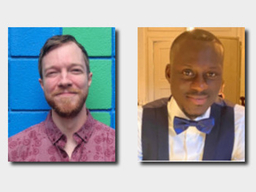Graduate Students Seminar
Location
Mathematics/Psychology : 104
Date & Time
October 22, 2025, 11:00 am – 11:50 am
Description
| Session Chair: | Josh McCarter |
| Discussant: | Dr. Matthew Kvalheim |
Speaker 1: Harrison Lewis
- Title
- Simulated Patient Data Classification for Accurate Tuning of Proton Beam Radiotherapy
- Abstract
- Proton beam radiotherapy is used to bombard tumor cells with radiation more precisely than standard radiology treatments. Novel radiation detectors are being developed to allow technicians to monitor the progress of the treatment in real time. To tune the precision of these detectors, GEANT4 particle simulations were created to model the entire experimental setup from emission to detection. Once generated, datasets are stratified into 13 classes representing distinct detection scenarios and preprocessed for machine learning. Fully Connected (FCN), Long Short Term Memory (LSTM), and 1D Convolutional Neural Networks (1DCNN) have been considered for the classification task. Studies were run on HPCF hardware on both CPU and GPU. True and corrected events are used to reconstruct the beam image to confirm its precise positioning and validate the classification.
Speaker 2: Mouhamed Oloude
- Title
- Meta-Analytic Structural Equation Models for Path and Confirmatory Factor Analyses
- Abstract
-
Meta-Analytic Structural Equation Modeling (MASEM) provides a
powerful framework for integrating theoretical models across studies by
combining the strengths of meta-analysis and structural equation modeling.
Whereas traditional meta-analysis focuses on single, independent effect
sizes, MASEM synthesizes entire correlation or covariance matrices to test
complex causal and measurement structures involving multiple interrelated
constructs.
This talk introduces the motivation behind MASEM, contrasting it with traditional and multivariate meta-analysis, and illustrates how it enables researchers to examine mediation, moderation, and latent variable models across diverse studies. Using examples and real data from the World Values Survey, I will demonstrate how MASEM reconstructs theoretical pathways that ordinary meta-analysis cannot capture.
